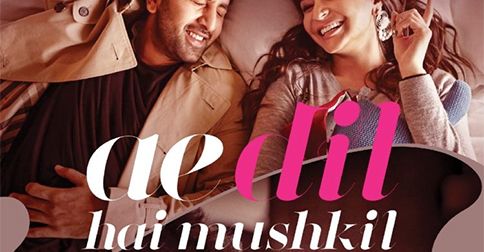Note: This post contains spoilers and is intended to be read by those who’ve already seen the film.
Kuch Kuch Hota Hai was probably the first movie I watched where I was old enough to have feelings about what was happening on screen, even if I didn’t fully understand why I was having those feelings. Even at that age, all those emotions felt tangible to me: Anjali’s longing as she looked at Rahul while the train pulled away from the platform. Rahul’s profound sadness coupled with his confusion at seeing this relationship in a new light. Tina’s regret upon understanding that she really had, in fact, come between the two. I wouldn’t have been able to identify any of those emotions then, but it didn’t matter – I was able to feel them, and that’s where Karan Johar‘s greatest strength lies: in exploring relationships so deftly that you don’t even realise he’s pulled apart so many different layers and put them in front of you.
18 years later, Karan explores friendship, love and heartbreak again with Ae Dil Hai Mushkil. This is probably the film most similar to his first outing as a director, as it features several themes and concepts that he first brought up in Kuch Kuch Hota Hai. In many ways, though, this is a more mature outing. Gone is the innocence of an 8-year-old who believes in happy endings and is determined to make one happen. Instead, we’ve got the wonderfully complex Alizeh, a woman who laughs easily and openly, but has seen her fair share of heartbreak. (Boyfriends, according to her, are like movies – some are blockbusters, some are timepass.)
Alizeh, thanks to The Big Heartbreak, is jaded and cynical. She prefers being in a relationship where she doesn’t have to really get involved, and this is something that speaks volumes of our generation. How many of us are so scared of heartbreak, that the fear alone is enough to keep us away from trying? This, of course, doesn’t work out well for Ayan, the man who Alizeh becomes fast friends with, but who slowly ends up wanting more from her. Ayan has yet to experience The Big Heartbreak, and so he’s largely immature in his approach to love: he loves a person, and therefore he wants her, and he cannot understand how she doesn’t feel the same for him.
The moment Ayan realises he’s in love with this woman, over a phone call, is one of the most beautiful scenes in the film. Equally beautiful is what comes after, when he travels to India to attend her wedding. I never thought I’d be a fan of back-to-back songs in a film, but ADHM does it so perfectly with Cutiepie and Channa Mereya. One minute we’re occupied in wedding festivities, and the next we’re pulled out of that as Ayan realises he can’t possibly fake it any more. The transition is heartbreaking, because Ayan’s longing for Alizeh is palpable. And longing really is the crux of the film.
Because if there’s a feeling stronger than love, it’s longing. You can love someone a lot, but you can’t love someone as much as you can want them, or miss them.
It’s no wonder, then, that Ayan goes borderline crazy in the film. Junoon, they say. He gets fairly abusive (which is almost unsettling to watch, especially since it’s so raw) and he constantly demands the answer: Why can’t you love me?
Alizeh’s answer always remains the same: I do love you. There’s a scene, during the climax, when Alizeh has to break it down for him. In romantic love, she says, she’s always found destruction. But the love that she has for him is her strength – and, to her, it’s more important than any other form of love. Pyaar mein junoon hai, dosti mein sukoon hai. The love she’s giving Ayan is the strongest form for her. But this is not enough for Ayan, who is hung up on romantic love, and cannot see that this is more powerful.
Can you truly accept the love another person is giving you, if it’s not the love you want from them?
There is just so much to feel and analyze and internalise in Ae Dil Hai Mushkil, that the big plot twist towards the end feels absolutely unnecessary. This is the one reason I can’t say I completely loved the film, because those last 30 minutes pulled me out of it. There’s no need for gratuitous tragedy to force the audience to feel things, when there’s already so much to take in organically.
But, thankfully, the very end is a saving grace, because Ae Dil Hai Mushkil‘s greatest strength is that there’s no “happy ending” in the traditional sense. He doesn’t “get the girl” like the movies have led us to believe should happen. Instead, he learns to appreciate the strength of a love so pure that it doesn’t even need to be romantic.
Somewhere between “pyaar dosti hai” and “pyaar mein junoon hai, dosti mein sukoon hai,” Ayan grew up. And so did we.

